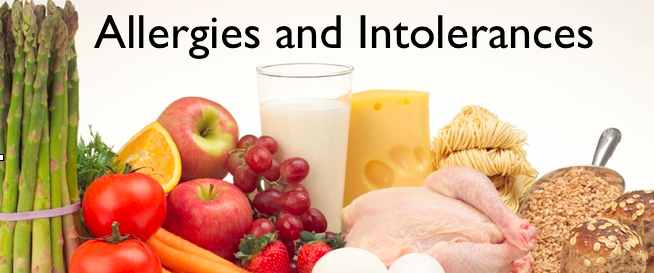Food allergy is an immune system reaction that occurs soon after eating a certain food. Even a tiny amount of the allergy-causing food can trigger signs and symptoms such as digestive problems, hives or swollen airways. Those reactions are also referred to as IgE mediated reactions. Whereas food intolerance can be due to not having enough of an enzyme to break down a food (eg: lactose intolerance) or other factors causing a food not to be tolerated, but it is not a “food allergy”.
Trying to determine if you are food allergic or just intolerant? Read this:
Patients who are concerned that they are having adverse responses to foods will read about  two types of tests. They are known as IgG and IgE testing. IgG testing is sometimes touted as a test for food “sensitivities/ intolerances”. Apart from specialized tests for lactose intolerance, there are no validated tests for food intolerances. More importantly, IgG testing is not a test for food allergy. IgE testing is used to look for a food allergy, not a food intolerance. This can be performed through blood testing or skin testing. IgE testing can still give false positive results more than 50% of the time! This means that the test may come back positive, but more than half the time the patient does not have a food allergy. This is often seen if the patient was “screened” for food allergies, without a known history of reaction after eating the specific food. Both IgE skin and blood tests can give false positives at the same rate. It is very important to discuss the results with an allergist to help interpret them. If the IgE testing is negative, it is VERY reliable against a food allergy, more than 95% accurate.
two types of tests. They are known as IgG and IgE testing. IgG testing is sometimes touted as a test for food “sensitivities/ intolerances”. Apart from specialized tests for lactose intolerance, there are no validated tests for food intolerances. More importantly, IgG testing is not a test for food allergy. IgE testing is used to look for a food allergy, not a food intolerance. This can be performed through blood testing or skin testing. IgE testing can still give false positive results more than 50% of the time! This means that the test may come back positive, but more than half the time the patient does not have a food allergy. This is often seen if the patient was “screened” for food allergies, without a known history of reaction after eating the specific food. Both IgE skin and blood tests can give false positives at the same rate. It is very important to discuss the results with an allergist to help interpret them. If the IgE testing is negative, it is VERY reliable against a food allergy, more than 95% accurate.
If you are planning to do skin testing to test for food allergies you need to be off of antihistamines for 5-7 days. Other medications can also block testing, such as sleep medications, anxiety medications etc. If there is any question about what medications will block a skin test please don’t hesitate to call someone at one of our 12 clinics. We will be happy to discuss with you.
 You CAN outgrow a food allergy. Some food allergies are more common to outgrow (milk and egg), so we often re-test a patient. If at that point the provider feels it is safe, the patient can undergo a food challenge in the office to that food. We have had patients outgrow their food allergies (egg, milk, peanut, and shrimp to name a few), and were able to confirm it with an IN OFFICE challenge. We do NOT recommend performing a food challenge at home as it is imperative to be under the supervision of a provider during the challenge.
You CAN outgrow a food allergy. Some food allergies are more common to outgrow (milk and egg), so we often re-test a patient. If at that point the provider feels it is safe, the patient can undergo a food challenge in the office to that food. We have had patients outgrow their food allergies (egg, milk, peanut, and shrimp to name a few), and were able to confirm it with an IN OFFICE challenge. We do NOT recommend performing a food challenge at home as it is imperative to be under the supervision of a provider during the challenge.
To determine if you have a food intolerance or a food allergy, schedule an appointment today!
Category: Uncategorized



